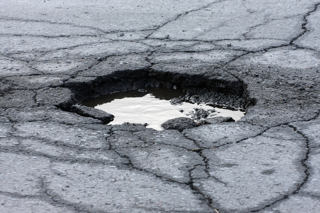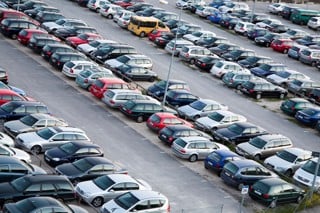More than half (59%) of drivers are unfamiliar with a range of new driving regulations introduced this year in France, a new RAC has found.
Three-quarters (78%) of respondents were not aware the speed limit on France’s secondary ‘D’ roads was reduced from 1 July from 55mph to 50mph, a move designed to reduce accidents.
Failure to comply could leave UK drivers with a penalty of up to €750 (about £670), which is now all the more likely as fines can ‘follow’ drivers back home under an EU directive.
The new speed limit is just one of a range of measures that introduced by the French government to improve safety on its roads, in the face of figures that show rising numbers are being killed.
Less than a quarter of drivers (23%) knew that using headphones or earphones while driving in France was illegal, while only 28% were aware drivers must now switch their engines off in a designated parking place in order to use a handheld mobile phone. Any driver ignoring this law faces the prospect of at least a €135 (£120) fine. More than half (59%) of all drivers questioned said they were not aware of any of these new regulations.
RAC European driving spokesperson Rod Dennis said: “The French have witnessed a big increase in the number of fatalities on their departmental ‘D’ road network in recent years, and while the decision to cut the speed limit on these roads has been fiercely opposed by some, the law is the law.
“British drivers that have been driving to France for many years on the same roads should pay particular attention to speed limit signs, especially as new rules now mean any traffic offences committed while away follow UK motorists home again – so there really is no escaping them.”
Drivers to the continent were also asked if their opinion of driving to Europe had changed as a result of the EU referendum result.
While the majority (71%) are confident they will continue to make trips across the Channel after next March, 5% said they plan on stopping and 23% were unsure.
As the clock ticks towards the UK’s exit from the EU, drivers also expressed some concern about what driving to Europe might be like after next March.
While the majority would like certainty that costs and inconvenience will not increase (59% and 57% respectively), four in 10 (41%) believe it will get more expensive and 55% think it will become more hassle – as a result of more border controls.
The RAC also asked drivers if they knew the free number to dial for the emergency services anywhere in the EU.
Less than half (42%) could correctly state it was 112, which is almost unchanged on the 38% who knew this when asked in 2015.
Double the proportion of drivers compared to 2015 incorrectly thought it was 111 – which is actually the UK’s non-emergency NHS number.
Dennis said: “As the UK moves closer to the moment when it formally leaves the European Union, drivers are also understandably concerned that the ease, and relative affordability, of driving across the Channel will be eroded from next March.
“Our research clearly shows they want reassurance from the UK government that their interests will be taken into account as part of the lengthy negotiations with the EU.”



















Peter moon - 30/07/2018 12:05
I am in France at the moment and it appears that more than half of French motorists are unaware of the changes too!